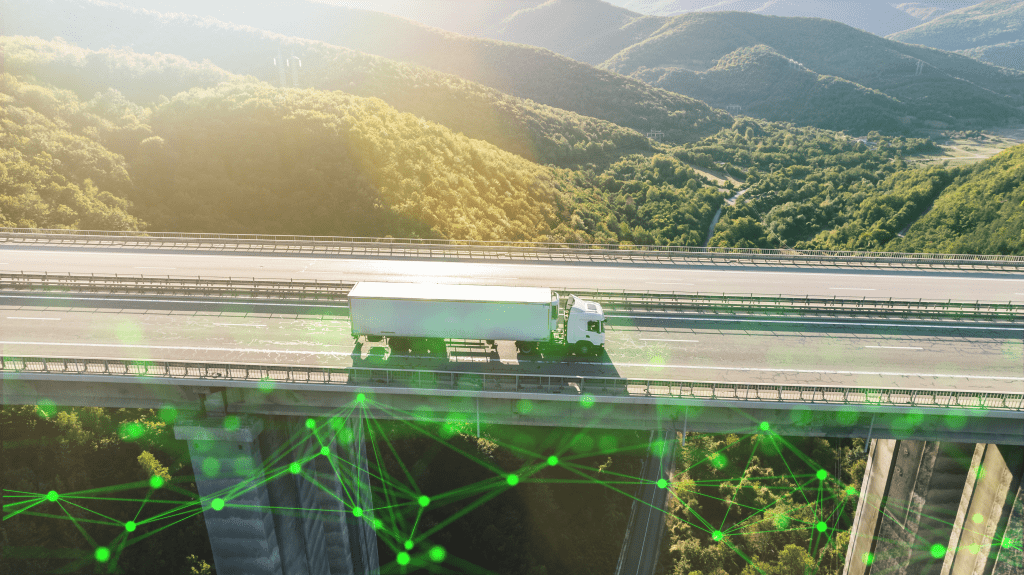1. ESG Practices and Sustainability.
In recent years, environmental, social, and governance (ESG) practices have gained significant importance in the business world, becoming a transportation trend. The transport logistics industry is no exception, and in 2024, there will be an increased emphasis on ESG practices.
Companies will prioritize reducing their environmental footprint, implementing sustainable supply chain strategies, and managing their social impacts. This includes reducing carbon emissions, conserving energy and water resources, ensuring fair labor practices, promoting diversity and inclusion, and supporting local communities. Embracing ESG practices will not only help companies meet regulatory requirements and customer expectations but also contribute to long-term business resilience and reputation.

2. Automation and Robotics.
Automation has been steadily transforming the transport logistics industry, and this transportation trend will continue to accelerate in logistics in 2024. The incorporation of artificial intelligence (AI), robotics, and autonomous vehicles will revolutionize various aspects of the supply chain.
Automated warehouses and distribution centers will streamline operations, utilizing robotics for tasks like picking, sorting, and inventory management. This will improve efficiency, accuracy, and reduce the need for excessive human labor at work. Making things better and safer will be beneficial.
3. Blockchain Technology.
Blockchain technology has the potential to transform supply chain transparency, security, and efficiency. In 2024, more people will use blockchain to trust and make transactions in the transport logistics system.
Blockchain technologies are decentralized and unchangeable. It allows for instant visibility and tracking in the supply chain. This prevents fraud and ensures adherence to rules.
Additionally, it offers proof of ethical sourcing or responsible production. This instills confidence in customers and stakeholders while promoting greater accountability across the logistics network.
4. Data Analytics and Predictive Intelligence.
The transportation industry creates lots of data. Using data analytics and predictive intelligence will be important for success in 2024. Transport companies can use data and technology to improve their operations, like predicting demand, optimizing routes and managing customer expectations and risks. Real-time data analytics will enable proactive decision-making, allowing businesses to respond promptly to disruptions, improve operational efficiency, and minimize environmental impact.

5. On-Demand and Shared Mobility Solutions.
The sharing economy has already transformed the passenger transport sector, and this trend will continue to evolve in 2024. Ride-sharing and car rental services will see more innovation and use in the future. Companies will invest in electric and autonomous vehicles, allowing for seamless and sustainable transportation for individuals and businesses.
These advancements will contribute to reducing traffic congestion, lowering carbon emissions, and promoting efficient resource allocation. Transport companies can offer a better customer experience by using data and technology. This allows them to provide a more personalized and convenient experience for their customers. Passengers can receive up-to-date information about their journey.
This includes arrival times, alternative routes, and any issues that may arise. They can access this information through mobile apps and online platforms. This will make customers happier and more loyal to the transport service providers.
Transport companies will focus on passenger safety and security as technology advances. Using advanced surveillance technology like CCTV and facial recognition software helps identify and manage potential risks and threats efficiently. AI algorithms can predict maintenance needs, keeping vehicles in good condition and reducing accidents or breakdowns.
Continuous Innovation.
The transport industry will continue to evolve rapidly, driven by ongoing technological advancements. Transport companies will need to embrace a culture of continuous innovation to stay competitive in the market. This includes investing in research and development to explore new technologies, such as autonomous vehicles and drone deliveries. By staying at the front of innovation, transport companies can adapt to changing customer needs, ensuring their long-term success.

Conclusion.
In 2024, transport logistics companies must focus on sustainability and responsible business conduct by adopting ESG practices. Automation and robotics will continue to revolutionize operations, yielding efficiency gains and promoting worker safety. Blockchain technology will enhance supply chain transparency and traceability, ensuring ethical and responsible practices. Data analytics and predictive intelligence will provide insights for optimized decision-making.
The integration of on-demand and shared mobility solutions will contribute to reducing environmental impact and optimizing resources. By embracing these trends, businesses can navigate the evolving logistics landscape and create a sustainable, responsible, and technologically advanced future.
Related posts

Logistics Planning: A Guide to an Effective Logistics Plan
Logistics planning is a game-changer in business operations. It's like an invisible engine that makes sure everything runs smoothly from when materials arrive to when products reach customers. If you're a small business owner, supply chain manager, or entrepreneur, it's crucial to understand logistics planning. This guide will show you the basics of logistics planning. It will help you create an effective plan that meets customer expectations and improves operational efficiency.

Is There Still a HGV Driver Shortage? The Outlook for 2024.
Back in October 2021, The Road Haulage Association estimated there was a shortage of 100,000 qualified HGV drivers in the UK. This came after news reports of a lack of HGV drivers had led motorists to panic buy fuel, causing widespread fuel shortages, even for commercial vehicles. The ripple effect of the HGV driver shortage has been palpable since then too, with disrupted supply chains within the retail and ecommerce sectors. There have been delivery delays, product shortages and price increases, all of which have cast a shadow on economic recovery. Fast forward to the end of 2023, and it's time to assess the situation anew. Where are we now and is there still an HGV driver shortage going into 2024?

Rota Maker: Simplify Your Shift Planning
Creating an effective shift plan is essential for a well-functioning team, especially for delivery drivers. A clear rota ensures seamless operations by outlining who is working and when. However, drafting an efficient schedule can be challenging without the right tools. That’s where a rota maker comes in—streamlining the process and removing the guesswork from shift planning. This guide explores tools like rota templates, rota calculators, and route planners. These can help you create accurate schedules, optimize delivery routes, and manage costs.
